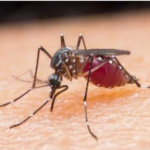Hurricane Oscar hits Cuba as it struggles with power outage
Hurricane Oscar has made landfall in eastern Cuba, bringing winds of nearly 80 mph (130 km/h) amid a near-nationwide power outage.
The island has been grappling with widespread electricity loss since Friday, when its main energy plant failed, cutting power to 10 million people. While power was partially restored on Saturday, it soon failed again.
Energy and Mining Minister Vicente de la O Levy said electricity would be restored to most areas by Monday night, with the remaining customers expected to regain service by Tuesday.
The Category 1 hurricane struck near the city of Baracoa at 17:50 local time (21:50 GMT), with waves as high as 13 feet (4 meters) battering the coastline.
A few hours after landfall, Oscar weakened to a tropical storm, according to the US National Hurricane Center (NHC).
Despite this, the NHC warned of possible “significant” flash flooding and mudslides in eastern regions.
Since the outages began, many have endured days without air conditioning or fans, leading to food spoiling in refrigerators and forcing some families to cook with firewood. Many households are also without water, as electric pumps power the supply.
Frustration is mounting, especially on social media.
The situation is becoming increasingly dire, with schools and businesses closed, and concerns about the continued operation of hospitals.
There are fears that Cuba’s aging energy infrastructure could sustain serious damage from the storm.
On Saturday, President Miguel Diaz-Canel said that authorities in eastern Cuba were “working hard to protect people and economic resources” ahead of Hurricane Oscar’s arrival.
The blackout on Friday occurred after the island’s largest power plant, Antonio Guiteras in Matanzas, went offline at around 11:00 local time.
The president attributed the country’s energy problems to the long-standing US embargo, which he says has prevented much-needed supplies and replacement parts from reaching Cuba.
Cuban Foreign Minister Bruno Rodríguez echoed this, stating on X that if the embargo were lifted, there would be no blackouts, suggesting the US could assist the Cuban people if it chose to.
Cuba has also been hit this year by a drop in crucial fuel shipments from Venezuela.
On Friday, Cuban officials announced that all schools and non-essential activities, including nightclubs, were to close until Monday.
Non-essential workers were urged to stay home to safeguard electricity supply, and non-vital government services were suspended.
“This is crazy,” Eloy Fon, an 80-year-old pensioner living in central Havana, told the AFP news agency.
“It shows the fragility of our electricity system… We have no reserves, there is nothing to sustain the country, we are living day to day.”
Bárbara López, 47, a digital content creator, said she had already “barely been able to work for two days”.
“It’s the worst I’ve seen in 47 years,” she said. “They’ve really messed up now… We have no power or mobile data.”



